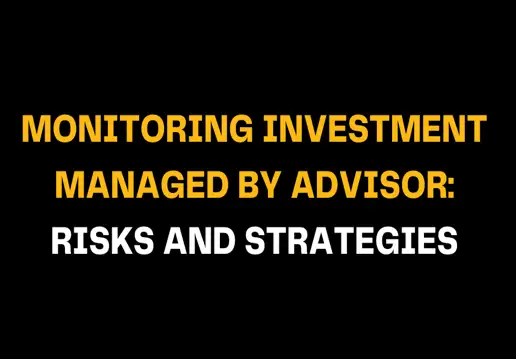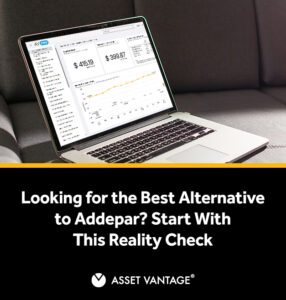Read Time4 Mins
When it comes to investing, keeping track of your investment managed by an advisor is crucial to achieving your financial goals. An investment advisor can help you design a portfolio that aligns with your financial objectives and risk tolerance. However, you should regularly monitor your investment to ensure that your portfolio is performing as expected.
Here are some tips to keep track of your investment managed by an advisor:
1.Understand your investment portfolio
You should understand your investment portfolio Management, including your asset allocation, investment returns, and fees. Your advisor should provide you with a detailed report on your portfolio’s performance at least once a quarter. This report will help you identify whether your portfolio is aligned with your financial goals.
2.Set clear investment objectives
Your investment objectives should be clear, realistic, and achievable. Your advisor should work with you to develop a personalized investment plan that aligns with your financial goals and risk tolerance.
3.Monitor investment performance
You should regularly monitor your investment performance to ensure that your portfolio is performing as expected. You can compare your portfolio’s performance to relevant benchmarks, such as stock market indices or mutual fund performance. Your advisor should be able to explain your portfolio’s performance and the factors driving its performance.
4.Communicate with your investment advisor
Regular communication with your investment advisor is essential to keeping track of your investment. You should schedule regular meetings with your advisor to discuss your portfolio’s performance, investment strategy, and any changes to your financial goals or risk tolerance.
5.Monitor investment fees
You should regularly monitor the fees you are paying for your investment. High fees can significantly reduce your investment returns over time. Your advisor should be transparent about the fees you are paying and the value they provide.
6.Stay informed
You should stay informed about the market and economic trends that can impact your investment portfolio. Your advisor should keep you updated on any significant changes or developments. You can also stay informed by reading financial news and analysis and attending investment seminars.
7.Use technology
Many investment platforms offer online tools that can help you monitor your investment performance and fees. You can also use online tools to track your financial goals and monitor your progress.
Over allocation to a single advisor can pose a significant risk to your investment portfolio. One of the primary problems that can arise from over-relying on a single investment advisor is a lack of diversification in your investment portfolio. Diversification is critical for managing risk and ensuring that your portfolio is well-positioned to weather market fluctuations. By putting all your investments with a single advisor, you may be vulnerable to concentration risk. Concentration risk occurs when a significant portion of your portfolio is invested in a single asset or a small number of assets, which can lead to significant losses if the asset(s) underperform or the advisor makes poor investment decisions.
Lastly, over-relying on a single advisor may limit your ability to monitor your investments effectively. If all your investments are with a single advisor, it can be challenging to assess whether your portfolio is performing as expected. By working with multiple advisors, you can compare investment performance, fees, and investment strategies, which can help you make more informed investment decisions.
In conclusion, both over allocation to a single advisor and failing to keep track of your investment managed by advisor can pose significant risks to your investment portfolio.
To mitigate these risks, it is essential to maintain a balanced and diversified portfolio, spread your investments across multiple advisors, and track your investment performance regularly. By doing so, you can ensure that your investments are aligned with your financial goals, risk tolerance, and investment strategies, and that you are making informed investment decisions. Additionally, it is crucial to communicate regularly with your advisors, ask questions, and review the investment strategy to ensure that it continues to meet your objectives. By working closely with your advisors and monitoring your investment performance regularly, you can minimize the risks associated with over allocation to a single advisor and ensure that your investments are working for you.







